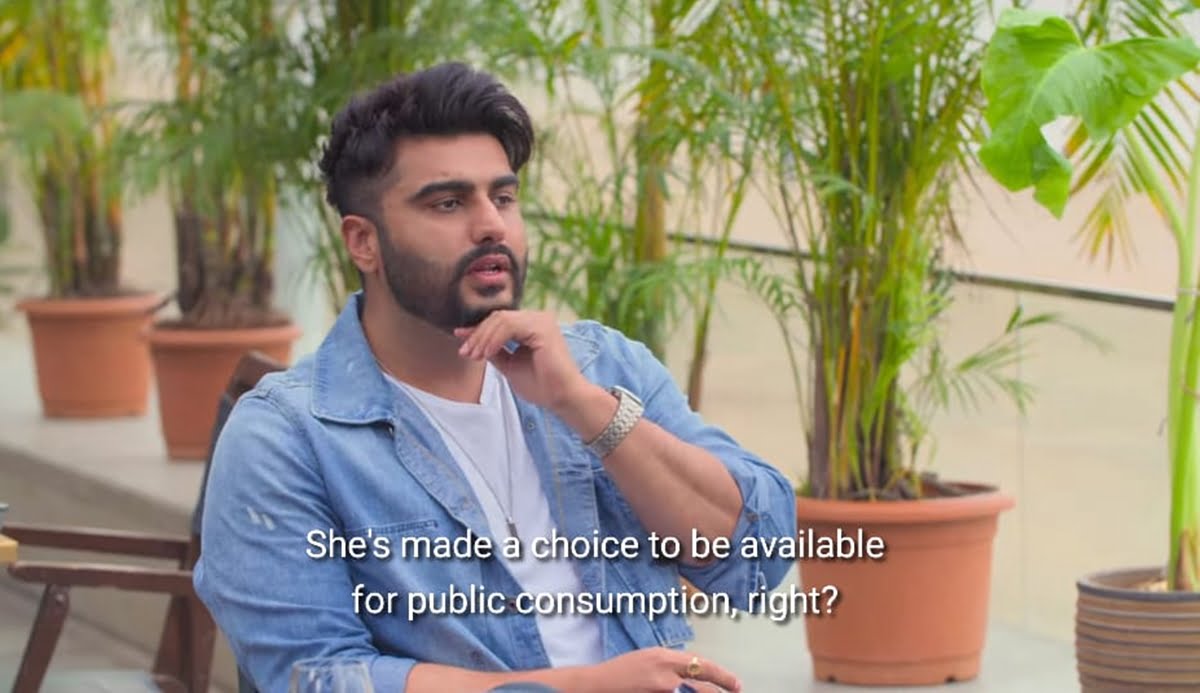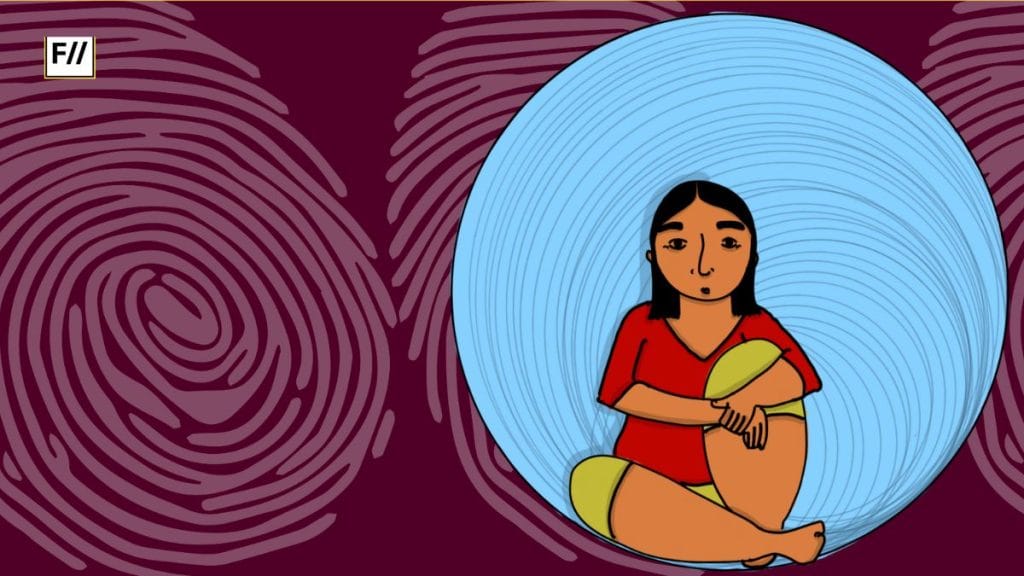Just the other day, I finally gave in to my occasional, self-confessed need for cringe content and watched The Fabulous Lives of Bollywood Wives. While the show refreshingly left no impression on me in any way, a particular moment did strike a chord. When one of the unsurprisingly interchangeable leads meets with Arjun Kapoor, they discuss the former’s daughter’s struggles with fame. After I had allowed myself the pleasure of unabashed cringe and judgement, I really started thinking about the way Kapoor describes celebrities as people who have “made a choice to be available for public consumption”, as if they were pieces of kebab.
Also read: Social Media Influencers: Serving Classism, Selective Feminism & Monolithic Nationalism
When one of the leads of The Fabulous Lives of Bollywood Wives meets with Arjun Kapoor, they discuss the former’s daughter’s struggles with fame. After I had allowed myself the pleasure of unabashed cringe and judgement, I really started thinking about the way Kapoor describes celebrities as people who have “made a choice to be available for public consumption”, as if they were pieces of kebab.
His analysis was bang on, of course, but what stayed with me was his acceptance of this; almost like he had had to resolutely convince himself that this was his reality for the foreseeable future.
While it’s true that a celebrity’s status is bestowed on by the masses— and can therefore, conversely be stripped off by the masses— does it then make them unconditionally tied to every whim and fancy of the peoples? And if it does, how can that be normal when behind that celebrityhood, there lies a very real, very flawed human being?
When we look at our “public” figures, do we tend to forget that it is only their fame that is public and not their personhood?
Not too long ago, one would have seen me chagrined and positively disgusted whenever I felt that a celebrity wasn’t using their fame and their resources ‘properly’: Why aren’t they more vocal, I would think. “Don’t they want their fans to be more responsible? Why is their conscience not explicit enough?”
Subsequently, I stopped myself from loving the art produced by these artists and fervently criticised their silence that I took to mean complicity. It made me feel like I was doing the right thing, doing my bit as the woke audience, holding accountable the people who depended on my cultural tastes and validation. Calling out their inaction and participating in cancel culture seemed like the proper way to fix culpability.
For a long time it didn’t occur to me that sometimes celebrities are not allowed to have a stance especially because of their fame, that the causes they advocate must be sanitised because otherwise they’d be incurring the wrath of their investors and their contract-makers. It took me a whole lot of rethinking to realise that not everyone has the strength or the freedom to contest those in authority and risk the stability of their access to a public platform. If one were lucky, one might be able to publicly declare one’s political position like Taylor Swift circa 2018 and assert some agency in her career, after fighting the authority of her father. However, at the other end of the spectrum lies another popstar— Britney Spears, truly a “Slave” to her daunting popularity, now stripped off the right to make her basic choices. (And it’s no mere coincidence that it’s the woman celebrity who receives more flak for their public opinions.)
So now what? Has Arjun Kapoor completely changed my worldview? Will I now stop holding the rich and the famous accountable? Are the Bollywood Wives decent actors? The answer to all three, not-necessarily-related, questions is a resounding no.
So now what? Has Arjun Kapoor completely changed my worldview? Will I now stop holding the rich and the famous accountable? Are the Bollywood Wives decent actors? The answer to all three, not-necessarily-related, questions is a resounding no. At no point should one’s privilege or position in the society overtake one’s desire to educate oneself or to work towards elevating the marginalised. I will always hold that belief sacred.
However, perhaps I can be a bit more mindful while accusing someone I have met on screen alone of not being vocal enough, of not doing activism “right”. Perhaps I can first consider if I’m asking something of them as a celebrity or a working professional? A celebrity’s status avowedly implies increased social responsibility, but do they automatically owe me their opinions because my appreciation makes them famous?
Perhaps I can ask myself, “Here’s this person whose job is to know what to do in front of a camera— will it really help the cause I support were they to send out a tweet in solidarity?” Admittedly, the answer leans towards a yes in terms of mobility and gaining numbers. However, in terms of the potentially misplaced intent and absconding conviction? Am I to overlook the possibility of an empty PR stunt/shifting the target audience entirely? I’m yet to find easy answers for this barrage of questions but until then, I can check my own entitlement.
This is a considerably controversial position I’ve taken, I’m aware, and full disclosure: I don’t even know if it is the correct one. Speaking up for the people already in power, not realising their socio-cultural potential? It doesn’t immediately scream feminism. Perhaps this isn’t the “right kind of activism” at the outset.
Also read: Rhea Chakraborty’s Media Trial Is an Extension Of A Diabolic Celebrity Worship Culture
However, there are a couple of things I know with certainty: First, I know nothing about the sheer unnaturalness of the lives of the famous. I am as disconnected to their lived reality (despite their supposed candid social media presence) as they are to mine.
Second, I could never live with myself having knowingly played a part, however small, in jeopardising someone’s mental health or sense of self to the extent that they believe that the sole purpose of their existence is “for public consumption”. I despise capitalism too much to reduce a person—any person— to a kebab.
Featured Image Source: Screengrab from Netflix
About the author(s)
Dipshikha completed her Masters in English in 2020 from The EFL University, Hyderabad. Her primary area of interest is the intersection of Queer Studies and Film Studies. She is currently enrolled in a film appreciation course at FTII, Pune and works as a researcher at Arth Early Learning Spaces, Kolkata.





This hits the readers so damn hard and makes each of us think. Thank you for making us think Dipshikha, as that apparently seems quite a difficult task to do these days given the circumstances.
Thanks for reading, Satavisha! I’m glad we’re pausing to rethink and grow ✨